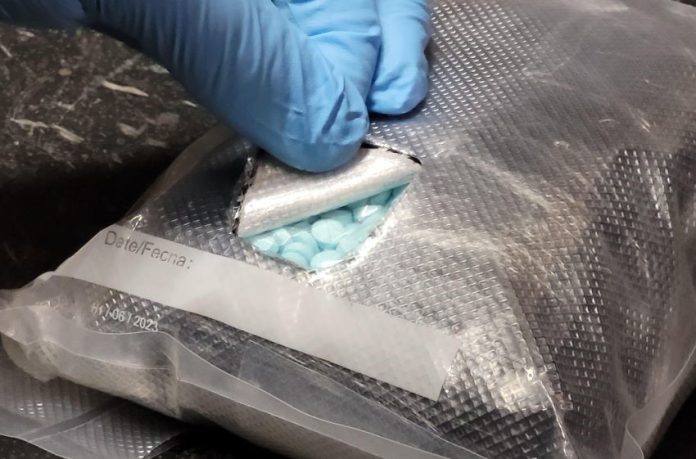Has the notorious Sinaloa Cartel reduced the amount of fentanyl it is shipping to the United States?
U.S. data suggests it might have, while a prominent security analyst believes the sons of convicted drug trafficker Joaquín “El Chapo” Guzmán Loera – who lead a Sinaloa Cartel faction – are seeking to appease the U.S. government by sending less of the deadly synthetic opioid across Mexico’s northern border.
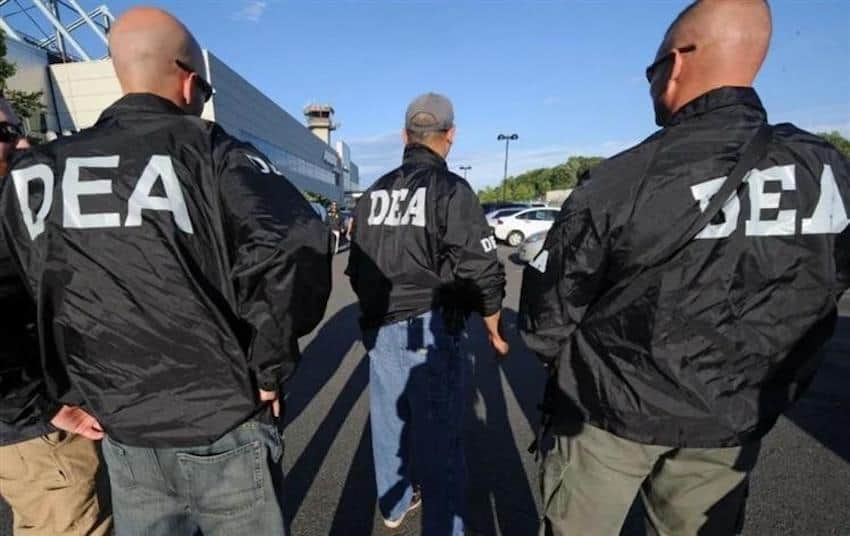
The quantity of fentanyl seized at the Mexico-United States border fell almost 60% between April and October, according to data from U.S. Customs and Border Protection (CBP).
CBP data shows that just over 1,445 kilograms of the synthetic opioid was confiscated at the United States’ southwest border in April, while the figure in October was 58.6% lower at 598 kilograms. There were month-over-month declines in May, June, July, September and October, while the only month in the period in which there was an increase in the quantity of fentanyl seized – and a slight one at that – was August.
The decline in seizures came after the United States Department of Justice unsealed drug trafficking and other charges against more than 20 Sinaloa Cartel members and associates, including Ovidio Guzmán López, Jesús Alfredo Guzmán Salazar and Iván Archivaldo Guzmán Sálazar – all sons of Guzmán Loera.
“Los Chapitos,” as El Chapo’s sons and a faction of the Sinaloa Cartel they lead are known, “pioneered the manufacture and trafficking of fentanyl – the deadliest drug threat our country has ever faced – flooded it into the United States for the past eight years and killed hundreds of thousands of Americans,” Anne Milgram, administrator of the United States Drug Enforcement Administration (DEA) said when the charges were unsealed on April 14.
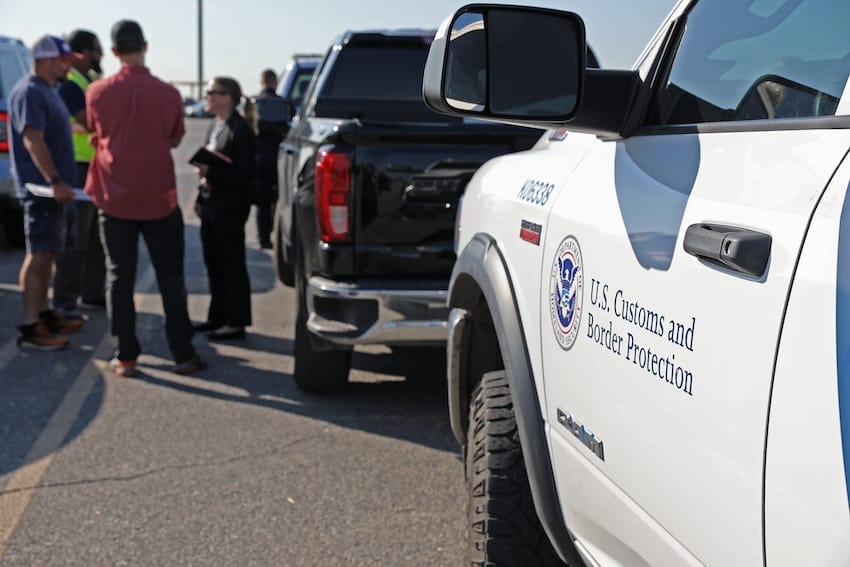
The Chapitos subsequently denied their involvement in the illicit fentanyl business in a rambling letter sent to the media. They maintained that position in “narco-banners” that appeared in Sinaloa in October, and declared that they had banned the sale, production and transport of fentanyl in the northern state.
While the Guzmán brothers’ claim that they were cracking down on the illicit fentanyl business was met with significant skepticism, security expert David Saucedo believes that Los Chapitos are at least making an attempt to withdraw from the fentanyl market.
“The Sinaloa Cartel forced its franchises to stop selling, transporting and marketing fentanyl. I’m not sure that [the Chapitos] have completely eliminated the trafficking of this drug, but we do perceive that there is a deliberate reduction of shipments of fentanyl to the United States,” Saucedo told the newspaper Milenio.
The Chapitos “understood that they had to make some concessions to the United States government,” he said.

Ovidio Guzmán – who was arrested in Culiacán in January – was extradited to the United States in September, a development that Milenio described as “the biggest blow” authorities have landed in the fight against fentanyl. However, there isn’t any conclusive evidence that his extradition was a factor in the month-over-month declines in the amount of fentanyl seized at the border in September and October.
Mike Vigil, former head of international operations for the DEA, said at the time that the capture and extradition of Guzmán López to the U.S. was “a symbolic victory,” but won’t “have any impact whatsoever on the Sinaloa cartel.”
The cartel will “continue to function” and “continue to send drugs into the United States,” he said.
In the remarks he made to Milenio, Saucedo reiterated his view that the Guzmán brothers have taken a considered decision to reduce their shipments of fentanyl to the U.S.
“It appears that the Chapitos have several strategies: a public narrative that they are not responsible for the production of fentanyl, the concession of not fighting against the capture of Ovidio, the abandonment of [their security chief] El Nini so that he was [able to be] captured and finally a reduction in shipments of fentanyl [to the U.S.]. I’m not sure it’s an elimination, but I am certain that it’s a unilateral reduction on the part of the Chapitos,” he said.
There is, of course, the possibility that the reduction in the quantity of fentanyl seized at the Mexico-U.S. border is not indicative of a reduction in the amount of the drug being shipped north. There are other suppliers of fentanyl to the U.S., including the powerful Jalisco New Generation Cartel, which doesn’t appear to have taken any decision to reduce its involvement in the lucrative market.
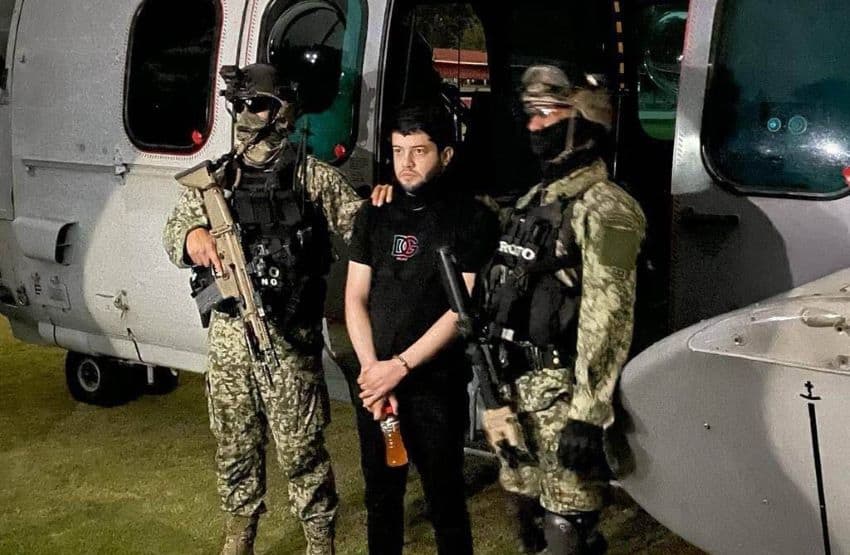
Cecilia Farfán-Méndez, head of research at the University of California, San Diego’s Center for US-Mexican Studies, told InSight Crime, a media organization and think tank, that drug “seizures do not reflect supply, they reflect enforcement.”
“Still,” InSight Crime reported, “they are one of the few empirical indicators illicit drug watchers can use to measure supply and demand.”
While the quantity of fentanyl being seized by the CBP has declined since April, the amount confiscated at the Mexico-U.S. border in U.S. fiscal year 2023, which concluded Sept. 30, was a record high 12,119 kilograms, an increase of almost 90% compared with FY22.
Insight Crime, which specializes in organized crime in Latin America, reported in late November that “it’s not yet clear how the [Chapitos’] ban [on fentanyl production and sales] is impacting cross-border fentanyl flows, if at all.”
It also said that some consumer markets in the United States “appear to have an oversupply of illicit fentanyl, which could be driving prices down.”
“Along the border in Nogales, Arizona, for example, city police told InSight Crime that a single counterfeit fentanyl pill is being sold for between just $0.35-$0.60. Similar price points were also seen in northwest cities like Portland and Seattle, where fentanyl has been readily available for years,” the media organization reported.
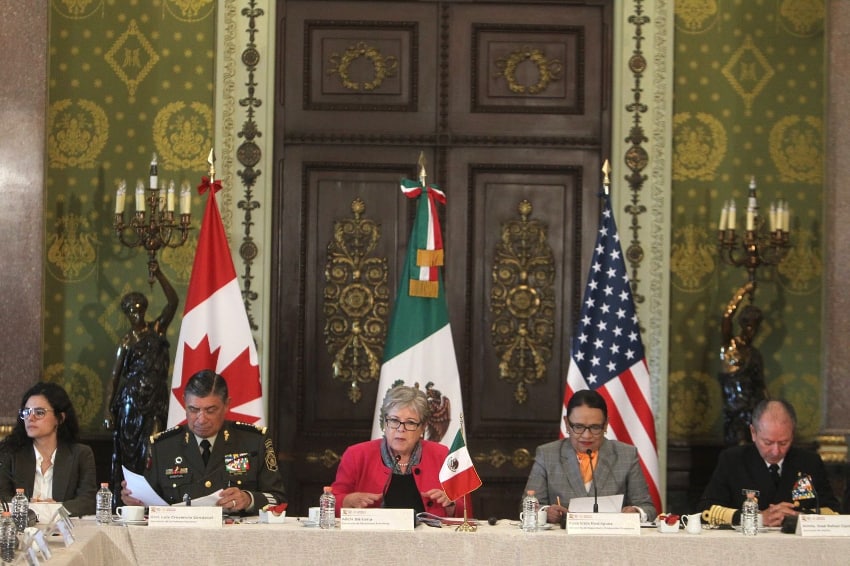
In Mexico, authorities seized 2,145 kilograms of fentanyl between Jan 1. and Nov. 13, according to information presented by Navy Minister Rafael Ojeda on Nov. 14. That amount is slightly higher than the quantity confiscated in all of 2022.
Combating the illicit fentanyl trade is a key priority in the bilateral security partnership between Mexico and the United States, and Mexican officials have repeatedly emphasized their commitment to the cause. The presidents of both countries recently discussed the issue with the president of China, which is a major supplier of the precursor chemicals used to make fentanyl.
President López Obrador in his meeting with Chinese President Xi Jinping in San Francisco last month emphasized “the importance of reaching an agreement to exchange information on [fentanyl and precursor chemical] shipments leaving Asia,” according to a Mexican government statement.
After his meeting with Xi on Nov. 15, United States President Joe Biden said that the Chinese president had agreed to take steps to curtail the supply of chemicals being used to make fentanyl, which is largely responsible for the overdose crisis in the U.S.
With reports from Milenio
